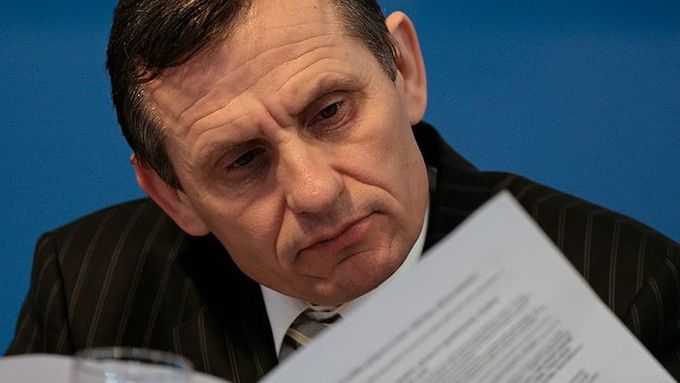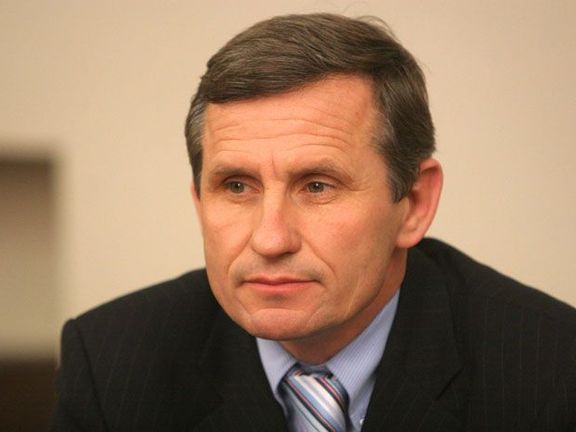Prague - A sky rocketing career - that is how a career of Czech controversial politician Jiří Čunek could be described.
Only in three months former mayor of Vsetín Jiří Čunek made a sudden career jump.
At first, in 2006, he was elected a senator, then appointed the head of the Christian Democratic Party (KDU-ČSL) and later he help to establish a coalition government together with the Civic Democratic Party (ODS) and the Greens.
In January 2007, he was approved by the parliament as Deputy Prime Minister and Regional Development Minister.
But then came the corruption affair that has been haunting him ever since. Until now.
The saga begins...
The embattled KDU-ČSL leader was criticized by the US State Department, which has recently released its annual report on human rights practices across the world for his eviction of some 360 Roma families from Vsetín during his mayoral tenure.
His case was included in the section titled Corruption and Transparency. Čunek was accused of accepting $25,000 (CZK 450,000) bribe from a real estate development company when he used to be mayor of the city of Vsetín in 2002.
In December 2007 the supreme state prosecutor concluded that there was insufficient evidence to prosecute Jiří Čunek on bribery charges, which raises questions of impunity.
Read more: US criticizes Jiří Čunek for Roma evictions, corruption
Dragging on
When the corruption scandal reached its peak, Minister of Foreign Affairs Karel Schwarzenberg, put up with the whole matter, commissioned a special audit by the US company Kroll. If found guilty, Minister Schwarzenberg warned he would leave the office.
The Greens Martin Bursík said yesterday at a weekly political talkshow Otázky Václava Moravce (Questions of Václav Moravec) that "there is no evidence of Čunek's alleged wrongdoings".
PM Topolánek said today both men, that is Čunek and Schwarzenberg would stay in the government. "I am not interested in the results of the audit. It was Karel Schwarzenberg that commissioned the investigation," added PM Topolánek.
For the (social) benefit of all
Corruption allegations are not the only stain of controversy on Čunek's reputation. He became a notorious and hard-line critic of the Roma minority. In a society where coexistence of the majority and Romany remains rather troubled, Čunek's steps won him and his party popularity among Czech electorate.
But, the prolonged state of the case being unresolved harmed Čunek´s reputation and the popularity of the Christian Democrats fluctuates depending on the development of the corruption affair.
In November 2007, it appeared that Čunek received a social allowance even though he had hundreds of thousands Czech crowns at his bank account then. That was the last drop.
He was forced to resign from his government post, though, only to return in April the following year.
Read more: Controversial Čunek comes back, Schwarzenberg stays
Roma minority revisited
Knowing that the Roma issue elevated him once to the highest level of Czech politics, Čunek stepped in to remind everybody his critical views towards the Romany two more times.
In March 2007, he advised the readers of Czech tabloid daily Blesk how to draw social benefits. .The most controversial remark was his advise to people to get "suntan", if they want to be entitled to social allowances, as Romanies often are. By saying this, his popularity began to pick up again in the following months.
In January 2008, Čunek stated at his party's conference: "Traditional Roma culture and its values are in many ways in discord with the Universal Declaration of Human Rights." These words were part of his lecture on new Christian Democrats' social policy.
Delayed project preparation
As Regional Development Minister, he was in charge of negotiating the largest European investment in the history of Czech economy. A sum of CZK 700 billion was to be granted to the Czech Republic for the budget period 2007-2013.
However, under his leadership, the Czech Republic presented its demands with such a delay that it may end in approval of poorly prepared projects.
The Czech Republic's delay was the worst in all the EU, together with Spain and Italy.
Of course, Čunek may say that the delay is a "child" of his predecessors. On the other hand, most programs were signed at the end of last year when Čunek was leaving the government.
Even though the budget period began 18 months ago, Czech ministries and regions have not begun yet to receive the EU grants.
You can find the official report by the Kroll company here.

